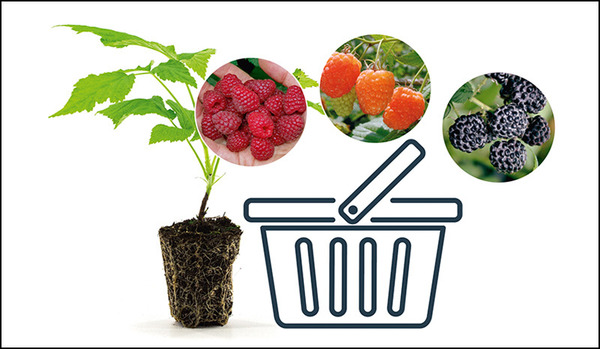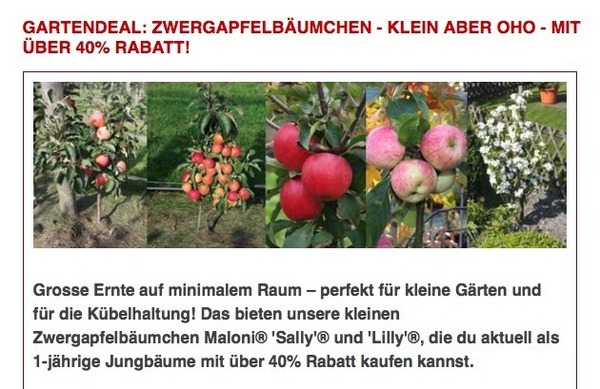 In view of the darkening economy, consumers are becoming more price-sensitive. They tend to think twice about whether they really need something or can do without it. This trend is also reflected in the garden and is likely to intensify. Derived from this, however, there are also opportunities that plant producers, together with their customers, can make targeted use of.
In view of the darkening economy, consumers are becoming more price-sensitive. They tend to think twice about whether they really need something or can do without it. This trend is also reflected in the garden and is likely to intensify. Derived from this, however, there are also opportunities that plant producers, together with their customers, can make targeted use of.
As always, we at Lubera Edibles try to profit from the trends visible at Lubera.com; we want to learn from them. The sales at Lubera.com take place online, but it still allows us to recognise developments at an early stage and also to use the findings for our plant production and for our young plant customers.

What are the striking trends at Lubera.com?
Perennial sales are soaring: the sales of perennials have also grown very significantly since the COVID-19 pandemic – at least for us – by around 30% per year. In July this year, so to speak out of season, we sold twice as many perennials as a year ago!
A plausible explanation might be that garden owners are relying less on seasonal plants and summer flowers and much more on perennials, ergo hardy perennials. In most cases, however, such shifts are multi-factorial. In addition, there is certainly the pecuniary argument: perennials are relatively low-cost – and yet sustainable. So, there could also be woody plant customers who opt for perennials as a substitute.
Reluctance to buy, a smaller shopping cart: despite price increases, our sister company is feeling clear pressure on the shopping cart, which is tending to become smaller. Consumers are buying, but consumers are buying plants for less money per purchase. On the other hand, the absolute number of sales remains stable and can even be increased relatively easily with suitable measures (more frequency and promotions) in both physical trade and online.
Promotion affinity: bargains are much better; promotion affinity has definitely increased and Lubera.com sells significantly more at weekends than it did a year ago.

How can you profit from these trends in sales and marketing, but also in production planning?
When customers become more price-sensitive and also limit their shopping carts (in the physical shop as well as on the internet), it is of course not easy, but not hopeless either, to find suitable strategies. We present four possible strategies below:
- Find plants that meet the trend
Just as perennials partially replace summer flowers, perennial vegetable plants could gain market share over annual vegetables. The prerequisite, however, is that the advantages analogous to perennials (longevity, relatively low price) are clearly played out.
- Special offers with smaller, cheaper plants – at the right time
This is the strategy most often pursued at the moment. What I have been asking myself all along is this: why do these special offers take place just when the inclination to buy is strongest, almost irresistible, in the spring? At that time there is even the unique situation that demand is greater than supply because the sales areas have not yet been fully stocked. Wouldn't it be better to run these relatively primitive special offers (small plants at a low price, mixes on pot plant trolleys) in the summer or early autumn, when the demand is not there naturally and self-evidently, but first has to be awakened? In addition, it would be easier financially and in terms of pricing to sell a plant that has not overwintered on a promotional basis.
- Kill two birds with one stone: be low-priced and still increase the shopping cart
This sounds like we are trying to achieve the impossible. At Lubera® we see very clearly that our so-called weekend deals are going very well. We often try to sell several plants or a whole assortment in order to achieve an acceptable shopping cart in addition to the promotional effect (low price). Somehow similar strategies (e.g. a small berry garden with four plants in a tray or basket or with a carrying handle) should also be feasible in the physical market.
- Accelerate summer and autumn
We have already mentioned that overwintering plants is expensive. After all, it requires space, energy and care. Considering cost pressure and dwindling margins, the maxim is to streamline production. This is not possible with overwintered plants. The consequence is to accelerate summer/autumn sales in order to bring as few plants as possible through the winter.
